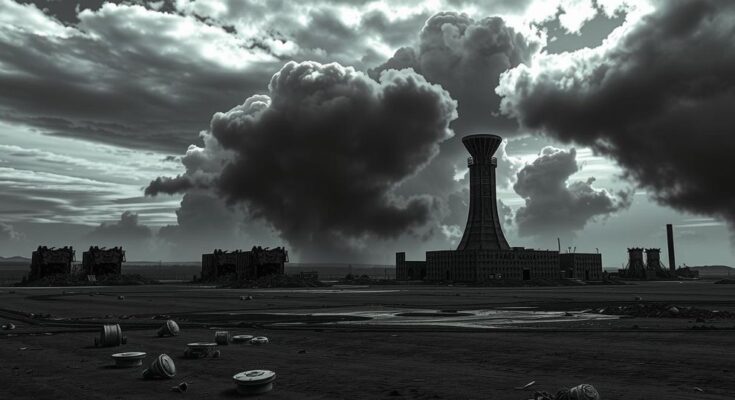In the latest political developments, President Trump’s insistence that Iran’s nuclear program has been all but destroyed raises eyebrows and concerns alike among analysts. This narrative, powerful yet precarious, serves multiple purposes, firmly rooted in self-affirmation for the President himself and a strategic play against potential further military conflict. However, as boosts of confidence about the successes of recent military actions begin to meet questions of their legitimacy, the landscape becomes murkier—and this story is far from over. Only time will tell if the Administration’s claims stand on solid ground or if its ambitions might just come crashing down.
The Importance of Perception for Trump
Understanding President Trump’s obsession with portraying Iran’s nuclear ambitions as completely eradicated might require a dip into the depths of his political psyche. First off, this depiction presents him as a powerful leader, brimming with decisiveness in a world where the truth often feels murky. It enhances that narrative—that he’s a brave, strongman figure who can handle threats and keep the nation safe. When facts oppose this narrative, even a whisper of dissent, they get pushed aside, because anything less than total annihilation of a perceived threat doesn’t fit well with how he wants to be seen.
Concerns Over Military Resurgence
Also stirring the pot is the question of what happens if Iran proves it can still churn out nuclear materials or picks up where they left off. If it’s revealed that their capabilities remain intact, this would raise significant implications. How does the U.S. respond? Another military strike? The suggestion of a prolonged conflict doesn’t sit well with Trump or his supporters. His administration faces a ticking clock, weighing the fallout between aggressive military responses and maintaining public support—something tricky to balance even on good days.
Claims Versus Reality
So, while Trump’s administration publicly insists on the massive success of the military strikes to Iran’s facilities, skepticism looms large. Notably, reports from Pentagon intelligence suggest that key components of Iran’s nuclear program weren’t completely wiped out, spawning counterclaims from the administration. After all, what does ‘obliterated’ even look like? During a NATO summit, Trump made these ambitious declarations that seemed to echo with the bravado he often employs, insisting on a complete architectural disaster at essential facilities. However, inherent contradictions in reporting resurface questions and uncertainty.
Conflicting Statements and Skepticism
Responses from Trump’s entourage have been nothing short of fervent, attempting to rally the narrative that Iran has been significantly set back. However, the evidence to back this claim doesn’t quite meet the bar he’s set. This may just be another example of trying to spin a narrative in a world that inherently fights against absolute truths. For them, the stakes are higher, and the need for certainty about Iran’s future capabilities could quickly escalate tensions again.
The Risk of Politically Motivated Intelligence
What’s more, there’s a potential complexity in the intelligence realm itself. Trump’s administration is known for having appointed officers who align closely with his views. As a result, there’s concern that the accurate picture may get clouded if political motivations drive the interpretations of incoming reports. Given history, such tendencies have grave implications for understanding national security threats accurately. All this leads to the heart of the issue: If future intelligence reports suggest Iran’s capabilities still loom large, Trump’s earlier claims could unravel, putting him at a political crossroads.
Why does Trump need Iran’s nuclear program to be seen as destroyed?
The idea behind this seems to centre on presenting Trump as a strong leader who has decisively dealt with a significant threat, reinforcing his reputation both domestically and internationally.
What are the risks of admitting that Iran’s program isn’t destroyed?
Speculations suggest that Trump’s reaction is meant to solidify his base while deflecting any questions about potential military actions that might escalate tensions further with Iran.
What might happen if Iran’s nuclear program is found to be intact?
The implications of any honest reporting could lead to calls for further military action which Trump does not want, both for his administration’s sake and for the risk of wider conflict.
How does the media’s coverage affect the Trump administration’s efforts?
The skepticism raised by opposition and media can become amplifying factors, creating an environment of mistrust, distractions, and missed opportunities for bipartisan support when it is in fact needed.
What does Trump’s stance imply about future negotiations with Iran?
It appears Trump, while not ruling out negotiations, is downplaying their significance, likely to firm up his position of having dealt a serious blow while leaving future discussions open but under his terms.




